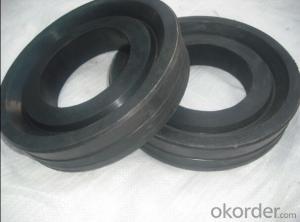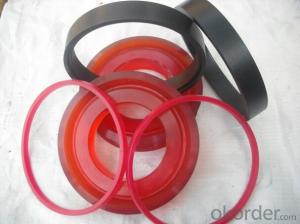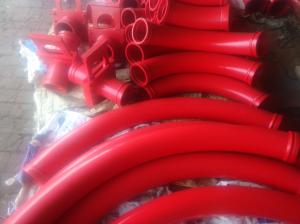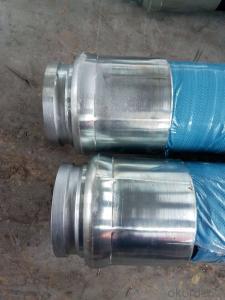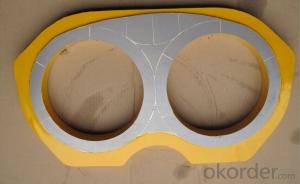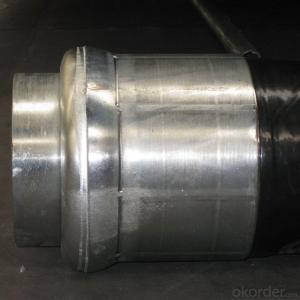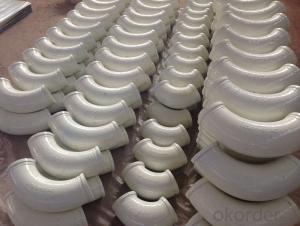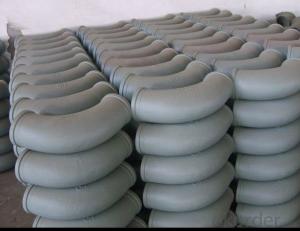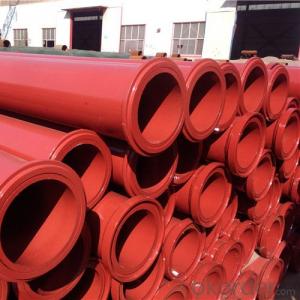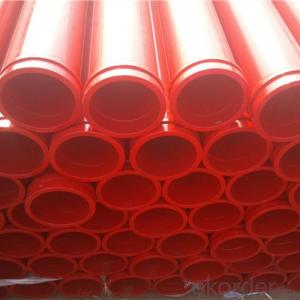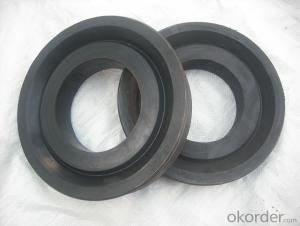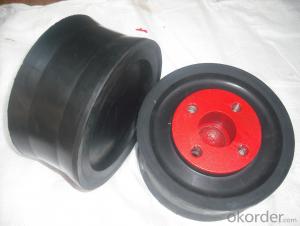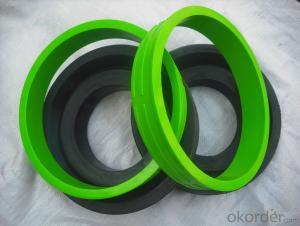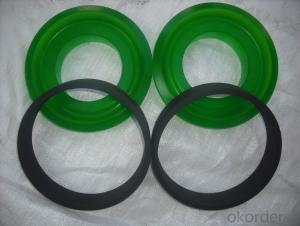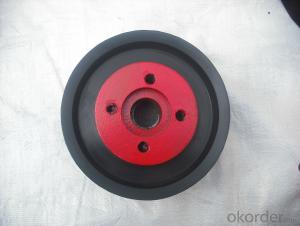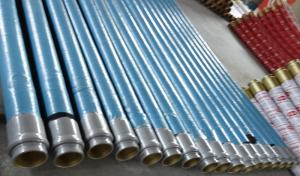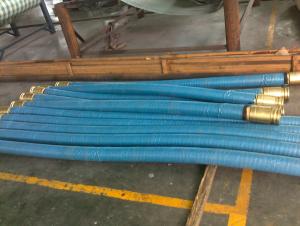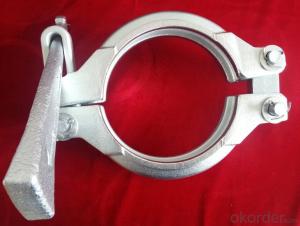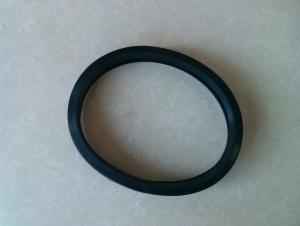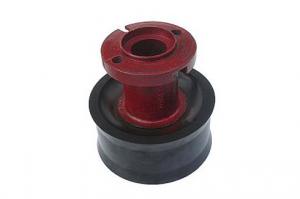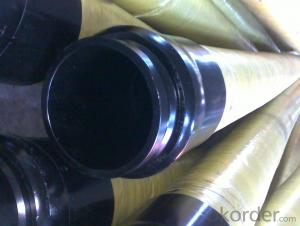SANY RUBBER PISTON DN200 WITH FIBER HIGH QUALITY
- Loading Port:
- Tianjin
- Payment Terms:
- TT OR LC
- Min Order Qty:
- 1 set
- Supply Capability:
- 500 set/month
OKorder Service Pledge
OKorder Financial Service
You Might Also Like
Sany oncrete pump rubber pistonwith fiber DN200
Schwing/ Sany/PM/Zoomlion concrete pump rubber piston
name | Concrete pump piston |
size | DN200 for Schwing DN230 for Schwing DN200 for PM entirety piston DN230 for PM entirety piston DN180 for Zoomlion piston DN200 for Zoomlion piston DN220 for Zoomlion piston DN230 for Zoomlion piston DN180 for Sany piston DN195 for Sany piston DN200 for Sany piston DN230 for Sany piston DN260 for Sany piston DN280 for Sany piston Other sizes and types upon request |
Material | PUR Polyurethane,natural rubber |
Applacation | Used in concrete pump truck,concrete pump,Hydrulic ram system in Construction work equipment
|
Serving brands of mounted truck concrete pump and concrete pump | Sany ,PM, Zoomlion,Schwing,CIFA and so on |
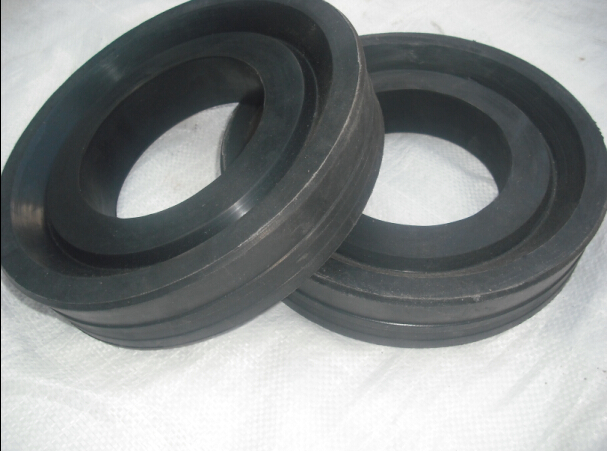
- Q: What are the signs of a malfunctioning hydraulic oil cooler?
- Some signs of a malfunctioning hydraulic oil cooler include overheating of the hydraulic system, decreased performance and efficiency of the equipment, increased hydraulic fluid leakage, abnormal noises or vibrations, and visible signs of coolant or oil leakage around the oil cooler.
- Q: What is the purpose of a concrete pump electric motor?
- The purpose of a concrete pump electric motor is to provide the necessary power and energy to operate the concrete pump. The motor converts electrical energy into mechanical energy, which is then used to drive the pump's hydraulic system. This hydraulic system is responsible for sucking in concrete from the hopper and pumping it through the pipes to the desired location. The electric motor ensures a smooth and efficient operation of the concrete pump, allowing for precise placement of the concrete and increased productivity on construction sites. Additionally, the use of an electric motor eliminates the need for manual labor and reduces emissions compared to traditional diesel-powered pumps, making it a more environmentally friendly option.
- Q: How does a hopper vibrator prevent concrete blockages?
- A hopper vibrator serves as a mechanical solution to avoid concrete blockages in construction equipment like concrete pumps and mixers. Its purpose is to apply vibrations to the hopper, which is the large container where the concrete is stored prior to pouring or transferring. Concrete blockages commonly occur due to the tendency of the material to settle and compact, particularly during prolonged storage or transportation. This can result in the clogging and obstruction of concrete flow, thereby impeding the construction process and potentially causing equipment damage. Through the utilization of a hopper vibrator, the vibrations are transmitted to the concrete within the hopper, effectively preventing settling and compaction. The vibrations loosen the concrete particles, ensuring they remain in a more fluid state. This facilitates a continuous and smooth flow of concrete, preventing any blockages or obstructions from arising. Furthermore, the vibrations from the hopper vibrator also aid in dislodging any existing blockages. The shaking motion can break apart concrete clumps or other debris obstructing the flow, enabling uninterrupted material movement. Overall, a hopper vibrator is an indispensable tool in construction equipment as it helps maintain a consistent concrete flow, thereby preventing blockages and ensuring the smooth and efficient operation of the construction process.
- Q: How can the concrete pump be installed and used?
- Concrete conveying pipe joints should be sealed tightly, pipe should be firmly connected. The vertical pipe shall be no less than 10m horizontal pipe with check valve. The vertical pipe shall not be attached directly to the outlet of the concrete pump.
- Q: How to deal with the blockage in the outlet of the distributing valve of the concrete pump?
- If this method does not dare, it can only be manually removed, remove the connecting pipe, remove the debris in the valve.
- Q: How often should concrete pump clamps be inspected and replaced?
- Concrete pump clamps should be inspected on a regular basis to ensure they are functioning properly and to identify any signs of wear or damage. The frequency of inspections will depend on various factors such as the frequency of use, the type of concrete being pumped, and the working conditions. In general, it is recommended to inspect concrete pump clamps at least once a month or after every 100 hours of operation, whichever comes first. This will help catch any potential issues early on and prevent them from escalating into major problems. Additionally, it is important to visually inspect the clamps before each use to check for any visible signs of damage or wear. This includes checking for cracks, deformations, or any loose or missing bolts. The lifespan of concrete pump clamps will vary depending on the quality of the clamps, the intensity of use, and the maintenance practices. However, as a general guideline, it is recommended to replace the clamps every 1-2 years or sooner if they show significant signs of wear or damage. Regular inspections and timely replacements of concrete pump clamps are vital to ensure the safety and efficiency of the pumping operations. It is always better to be proactive and address any potential issues promptly to prevent costly repairs or accidents.
- Q: How often should the concrete pump cylinder be replaced?
- The replacement frequency of the concrete pump cylinder relies on several factors, including usage, concrete quality, and pump maintenance. With proper care and regular servicing, a concrete pump cylinder can last for many years. However, it is advisable to regularly inspect the cylinder for wear and tear and replace it immediately if any damage or deterioration is noticed. It is wise to take a proactive approach and replace the cylinder before it completely fails to prevent accidents or disruptions during pumping. Ultimately, consulting the manufacturer's guidelines and recommendations for the specific make and model of the concrete pump cylinder is the best course of action.
- Q: What are the elements of concrete pump and concrete pump truck selection?
- The performance of the random type varies depending on the type and structure of concrete pump truck building, in addition to considering the choice of models into the concrete pouring amount, should also consider the building type and structure, technical requirements, construction site conditions and environment etc.. The main performance parameters of the concrete pump vehicle should be in line with the construction requirements or slightly larger. If the capacity is too large, the utilization rate is low, too small, not only can not meet the requirements, but also will accelerate the loss of the concrete pump truck.
- Q: Can concrete pump spare parts be ordered in bulk quantities for future use?
- Yes, concrete pump spare parts can be ordered in bulk quantities for future use. This can be beneficial to ensure a continuous supply of spare parts, reduce downtime, and potentially negotiate better pricing and discounts.
- Q: How do I properly maintain and replace wear plates in concrete pump spare parts?
- Properly maintaining and replacing wear plates in concrete pump spare parts is crucial for the optimal performance and longevity of your equipment. Here are the steps you can follow to ensure that the wear plates are properly maintained and replaced: 1. Regular inspection: It is important to regularly inspect the wear plates in your concrete pump spare parts to identify any signs of wear or damage. Look for cracks, excessive wear, or any other visible signs of deterioration. 2. Cleaning: Before replacing the wear plates, make sure to clean the area around them thoroughly. Remove any debris, dirt, or hardened concrete that might be present. Use a pressure washer or a wire brush to clean the surface properly. 3. Measure wear plate thickness: Measure the thickness of the wear plates using a precision measuring tool. Compare the current thickness with the manufacturer's recommended specifications to determine if replacement is necessary. If the wear plates are below the recommended thickness, it is time to replace them. 4. Remove old wear plates: Carefully remove the old wear plates using appropriate tools. Take note of their positions and any alignment marks to ensure correct installation of the new plates. 5. Prepare new wear plates: Before installing the new wear plates, ensure that they are of the correct size and specifications for your concrete pump. Check for any defects or damage in the new plates before proceeding. 6. Apply lubrication: Apply a thin layer of lubricant or anti-seize compound on the mating surface of the new wear plates. This will help prevent corrosion and ease future replacement. 7. Install the new wear plates: Position the new wear plates in the correct location, aligning them with any reference marks or indicators. Secure them tightly using the appropriate bolts or fasteners, making sure not to overtighten. 8. Test and check alignment: Once the new wear plates are installed, perform a test run of the concrete pump to ensure that everything is functioning properly. Check for any leaks, unusual vibrations, or misalignments. If any issues are detected, address them promptly. 9. Maintain regular maintenance schedule: To prevent premature wear and damage to the wear plates, establish a regular maintenance schedule. This may include cleaning, lubricating, and inspecting the wear plates at specified intervals or after a certain number of hours of operation. By following these steps and maintaining a proactive approach to wear plate maintenance and replacement, you can ensure the smooth operation and prolonged lifespan of your concrete pump spare parts.
Send your message to us
SANY RUBBER PISTON DN200 WITH FIBER HIGH QUALITY
- Loading Port:
- Tianjin
- Payment Terms:
- TT OR LC
- Min Order Qty:
- 1 set
- Supply Capability:
- 500 set/month
OKorder Service Pledge
OKorder Financial Service
Similar products
Hot products
Hot Searches
Related keywords
